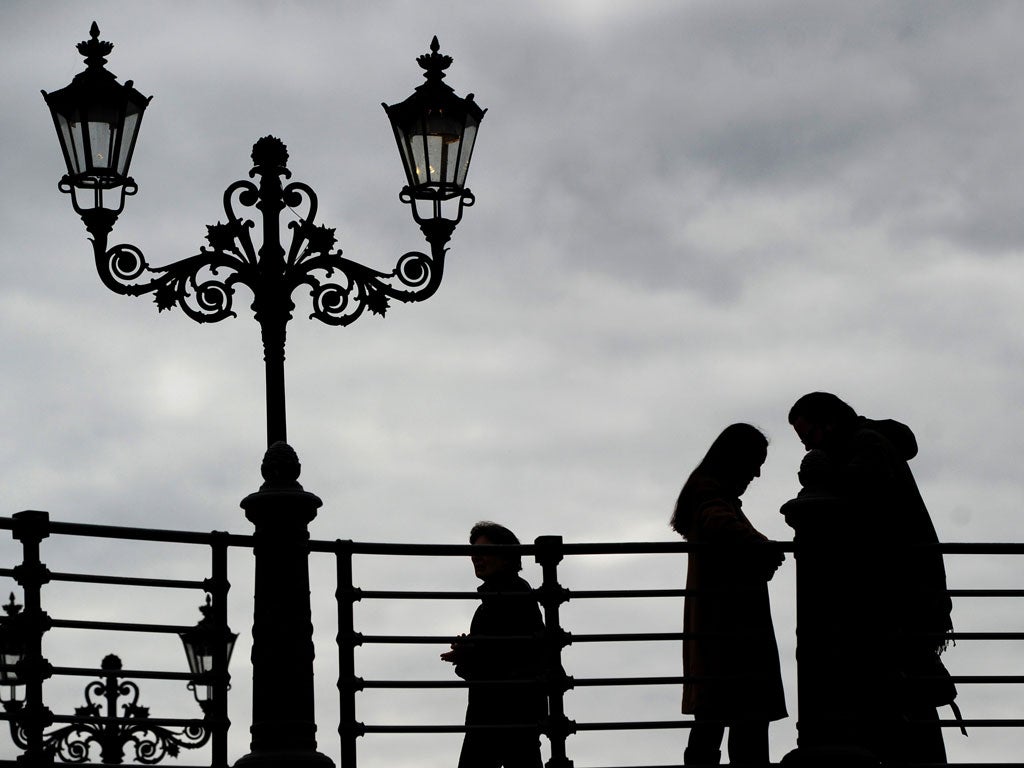Berlin's gas lamps to be snuffed out
Heritage fans and greenies battle over plan to cull historic street lights

Your support helps us to tell the story
From reproductive rights to climate change to Big Tech, The Independent is on the ground when the story is developing. Whether it's investigating the financials of Elon Musk's pro-Trump PAC or producing our latest documentary, 'The A Word', which shines a light on the American women fighting for reproductive rights, we know how important it is to parse out the facts from the messaging.
At such a critical moment in US history, we need reporters on the ground. Your donation allows us to keep sending journalists to speak to both sides of the story.
The Independent is trusted by Americans across the entire political spectrum. And unlike many other quality news outlets, we choose not to lock Americans out of our reporting and analysis with paywalls. We believe quality journalism should be available to everyone, paid for by those who can afford it.
Your support makes all the difference.The pools of soft yellow light cast on the pavements of night-time Berlin by the city's thousands of historic gas street lamps can give visitors a thrilling sensation of having either walked back in time or straight on to the set of Cabaret, the award-winning film set in the German capital of the early 1930s.
Berlin has a record 43,900 gas street lights – more than any other city in the world. They range from ornate wrought-iron five-lantern candelabra dating from the 1890s to graceful curved arc lights lining the city's thoroughfares and installed in the still bomb-damaged capital of the 1950s.
But the city's Social Democrat-led administration has plans to bring its 180-year-old tradition of gas street lighting to an abrupt end. It argues that they are too costly and environmentally harmful, and it has begun replacing them with an electric equivalent. The city's heritage movement is, of course, not happy.
Under current plans, nearly all of the gas lamps will have been replaced by a more economical type of electric lamp called "Jessica" by 2020. The city's Department for Urban Development claims that, by eliminating gas lighting, Berlin will live up to its environmental obligations, cutting 9,200 tons of CO2 emissions. The city's Green Party agrees.
"The city doesn't have to become a museum," insisted Petra Rohland, a spokeswoman for the department. "Environmental protection has attained a dimension that would have been unthinkable half a century ago."
She commented that the mantles for the gas lights now have to be ordered from India because no one in Germany makes them any more. "It's madness," she said.
Berlin's administrators also say that getting rid of gas will substantially reduce the €23m bill taxpayers pay annually for street lighting because it will end what they claim is the inordinately high cost of maintaining the gas lamps. They claim that the cost of a single gas street light is 11 times higher than its electric equivalent. "You have to ask yourself as an informed citizen whether these costs are justified," said Stephan Völker, a street lighting expert from the Technical University of Berlin who is advising the city government.
However, Berlin's authorities face furious opposition from pro-gas light campaigners who are fighting to stop the "conversion" project. Their "Gaslight Culture" protest is being backed by the veteran German television presenter Ilja Richter, who, at the age of 59, has resorted to appearing naked on stage with a gas light to rally support for the cause.
Richter claims the Berlin government is being inconsistent, citing its backing for a multimillion plan to rebuild the city's former Royal Palace, which was destroyed by the communist regime of East Germany. "They are rebuilding the palace à la Disney, saying it has to happen for reasons of history and authenticity, but at the same time they want to get rid of the gas lamps. It doesn't make sense," he said.
Bertold Kujath, 52, the civil engineer behind the "Gaslight Culture" campaign, says that if the city government does not give way in the dispute, he will take the issue to Unesco and request that the city's gas lights be protected under World Heritage status. He accuses officialdom of barbarism. "Berlin's gas street lighting is a glowing testimonial to an outstanding era of style and industry," he said. "We cannot allow globally unique cultural heritage to be thrown on the scrapheap."
Mr Kujath claims that the city's authorities have manipulated the figures to justify an expensive gas-to-electricity conversion which will benefit private industry and help to create jobs. He says the city government's data cannot be properly scrutinised. "The city does not make its calculations transparent. It's almost impossible to verify their figures," he said.
He also rejects the claim that gas lighting seriously harms the environment. By contrast, he argues that gas is environmentally friendly because it emits hardly any ultraviolet light and does not attract the millions of insects that are routinely fried to death on electric street lights.
Mr Kujath campaigned successfully against Berlin city government plans to axe gas street lamps back in the 1980s. But the proposal was revived in 2007 and contracts for the completion of the project are due to be signed this year. The authorities are confident that even if campaigners force a city-wide referendum on the issue, they will be defeated on grounds of cost.
Meanwhile, the plans have incurred emotional criticism from some of Germany's most respected newspapers. "When snowflakes dance in gas light they become golden stardust and raindrops develop a comet's tail. Does one have to be a Berliner to feel that their disappearance is brutal modernisation?" asked the liberal weekly Die Zeit.
Join our commenting forum
Join thought-provoking conversations, follow other Independent readers and see their replies
Comments